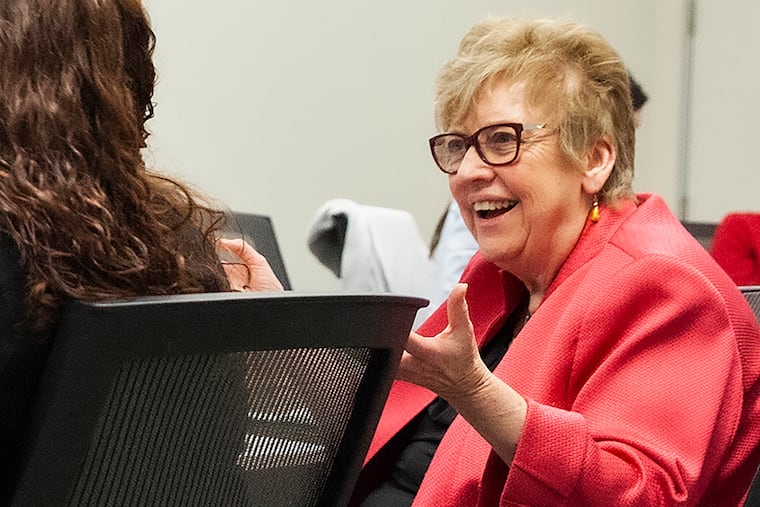Women’s Law Project seeks a new leader at a key moment in the gender justice movement
Executive director Carol Tracy announced plans to retire in June 2022.

The Pennsylvania nonprofit that acted as cocounsel in the landmark Supreme Court case that affirmed a woman’s right to undergo an abortion before fetal “viability” is searching for a new leader.
After 31 years at the helm of the Women’s Law Project, Carol Tracy announced this week she will be stepping down as executive director in June.
“I’ve been an activist in the Philadelphia area for 50 years,” said Tracy, 75, who said she wants someone with “younger eyes” to take over. “I think it’s time for me to hand over the mantle to a different generation.”
Under Tracy, the Women’s Law Project fought for abortion rights in Pennsylvania and following a damning 1999 Inquirer investigation, guided the Philadelphia Police Department’s Special Victims Unit into becoming a national model in how to handle sexual assaults.
The organization would later push the FBI to change how it defines rape in order to collect better data on sexual assaults.
Whoever becomes Tracy’s successor will be taking the reins at a critical moment in the gender justice movement.
On Wednesday, the U.S. Supreme Court’s conservative majority signaled it would uphold a Mississippi law that bans most abortions after 15 weeks. Critics of the Mississippi ban say such a decision would undermine the tenet guaranteed in Roe v. Wade, and affirmed in a case the Women’s Law Project helped argue before the Supreme Court in 1992 — Planned Parenthood v. Casey, which gave women the choice to have an abortion until the fetus can survive outside the womb, typically around 24 weeks.
Tracy said when she came to lead the Women’s Law Project, she thought abortion rights were secure. In Casey, the highest court struck down a Pennsylvania statute that required a woman to obtain her husband’s permission to get an abortion. The court determined no abortion law could place an “undue burden” on the women trying to undergo the procedure.
Though the court isn’t expected to come down with a decision in the Mississippi case until June, the potential paring back of Roe has Pennsylvania activists and politicians on both sides of the issue prepping for legislation that could restrict abortion access.
These developments come as the Women’s Law Project is trying to help abortion providers expand access to the procedure for low-income women. The organization is getting ready to make arguments before the Pennsylvania Supreme Court in efforts to reverse a ban that stops Medicaid from covering the cost of abortions, except in cases of rape and incest, or when the mother’s life is in danger.
Tracy’s successor will also be dealing with an array of other policy issues, from fighting for women who have been fired because of a pregnancy, to athletics equity, to the continued advocacy of women who have suffered from sexual assault.
“We care so much about these issues, even if we have a full agenda, if something comes that’s egregious, we’ll just put in the extra time, the extra hours, the extra effort, to push the envelope in as many directions as we can,” said Tracy.
The job, of course, is not a regular 9-to-5, said Tracy, and it requires the person to see gender justice through an inclusive lens of racial equity. What’s more, the right candidate must have a certain level of passion, humor, and the ability to raise money for the organization’s causes.
On the latter front, Tracy is hoping to offer her successor some cushion. WLP has created a leadership transition fund. If the organization can reach $100,000 in contributions by June 2022, it will receive a match from allies.
How does Tracy feel about the current state of affairs?
“I’m p—ed off, but I’m not hopeless by any means,” she said.
Besides, Pennsylvania hasn’t seen the last of Tracy. She said her retirement means she can finally volunteer and get involved in electoral work.